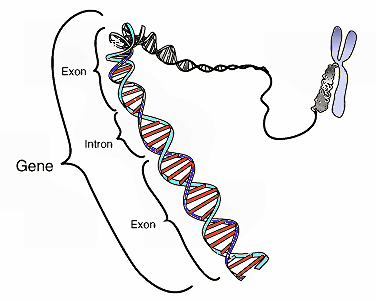Novel genes identified that help suppress prostate and other cancers

New genes which help prevent prostate, skin and breast cancer development in mice have been discovered by researchers at the Wellcome Trust Sanger Institute and their collaborators. The study identified genes that cooperate with the well-known tumour suppressor gene PTEN, and showed their relevance in human prostate tumours.
Reported today in Nature Genetics, this research sheds light on new pathways involved in cancer development - these could be possible drug targets for cancers with a faulty PTEN gene. The methods developed could also identify other genes that cooperate to suppress cancer growth.
Prostate cancer is the second most common cancer in men in the UK with around 47,000 men diagnosed each year. More than half of prostate cancers have an altered or missing PTEN gene, as do many other cancers, including brain tumours, and endometrial cancers.
Tumour suppressor genes such as PTEN help prevent cancer development in healthy people. PTEN regulates an important cell pathway for growth and division. However, little is known about which other genes and pathways cooperate with PTEN to prevent cancer.
In this study, researchers designed a new method in mice in which part of the Pten gene was converted into a mobile DNA element known as a transposon. When this was mobilized from the Pten gene it was inactivated. Importantly the transposon carrying a piece of Pten would land randomly throughout the genome, damaging genes into which it inserted. Cancers would grow when the transposon damaged a tumour suppressor gene that co-operated with Pten.
Dr Jorge de la Rosa, the first author on the study from the Wellcome Trust Sanger Institute, said: "We developed a new method that coupled Pten inactivation with mobilization of the transposon. We inserted the transposon directly inside the Pten gene, so that whenever it jumped out and inserted into another part of the genome, it inactivated Pten at the same time. By analysing which genes were disrupted in the cancers that grew, we were able to pinpoint genes that cooperate with Pten in suppressing tumours."
The researchers analysed 278 prostate, breast and skin tumors from the mice and revealed hundreds of genes that could cooperate with PTEN and act as further tumor suppressor genes. Human cell lines and data from human prostate tumours were then used to study the five most promising genes.
Dr Juan Cadiñanos, joint lead author from the Instituto de Medicina Oncologica y Molecular de Asturias, in Spain, said: "This is the first study to look specifically for tumour suppressor genes that cooperate with PTEN in a range of cancer types. We found that genetically inactivating PTEN and each of the five candidate genes in human cell lines did drive cancerous changes in the cells. We also discovered that human prostate cancer samples had lower levels of expression from the five genes than usual, indicating that these pathways may be important for suppressing tumours."
The researchers also studied one of the five genes, called Wac, in transgenic mice with mutant Pten. They discovered that removing one copy of Wac increased the size of prostate tumours, as expected for a tumor suppressor. However, removing both copies in the genome surprisingly reduced the size of the tumours. This could reveal new pathways to target for treating prostate cancer.
Prof Allan Bradley, joint lead author from the Sanger Institute, said: "Drugs that target PTEN related pathways are under development, but tumours quickly develop resistance. It would therefore be useful to also target other tumour suppressor pathways. This new method is a good way of highlighting important tumour suppressor networks, and we hope the genes identified in this study will provide a basis for the development of therapeutic strategies for prostate and other cancers."
More information: A single-copy Sleeping Beauty transposon mutagenesis screen identifies new PTEN-cooperating tumor suppressor genes, Nature Genetics, nature.com/articles/doi:10.1038/ng.3817

















